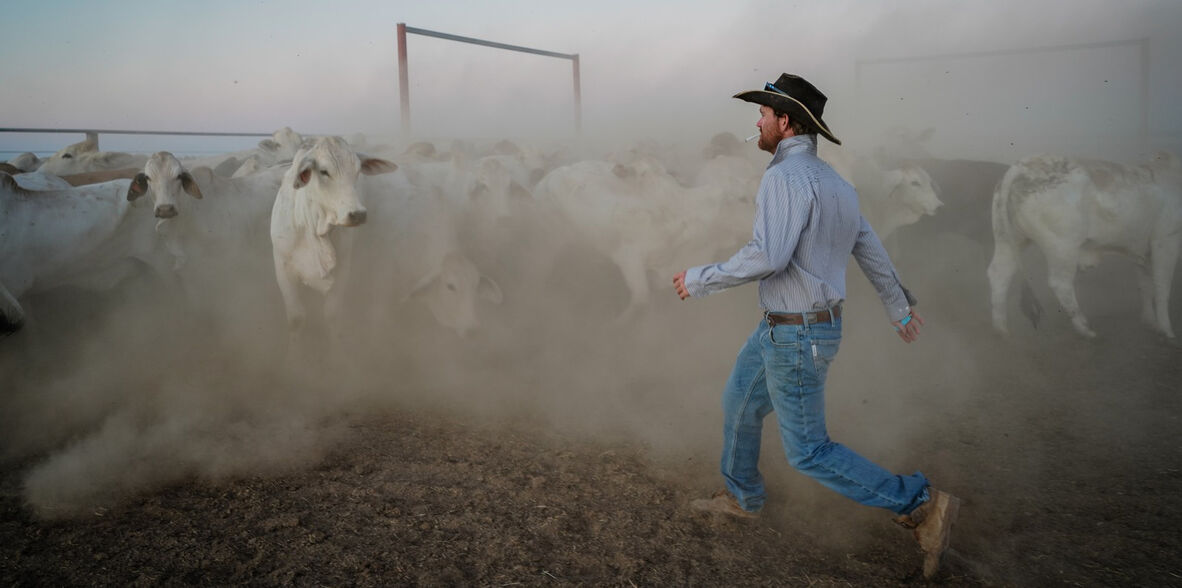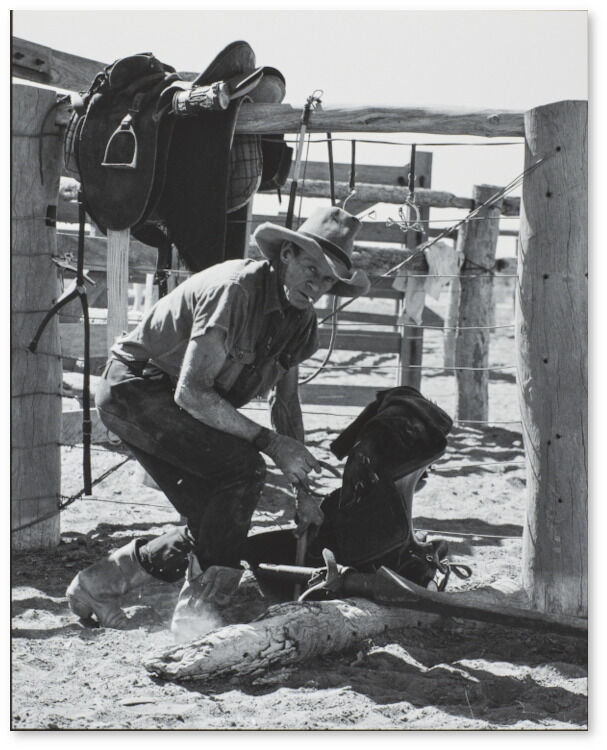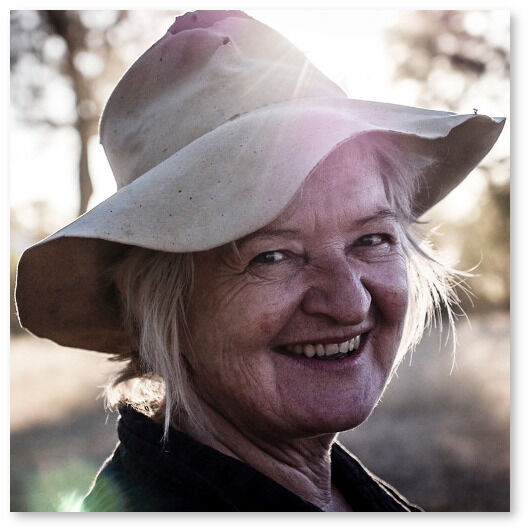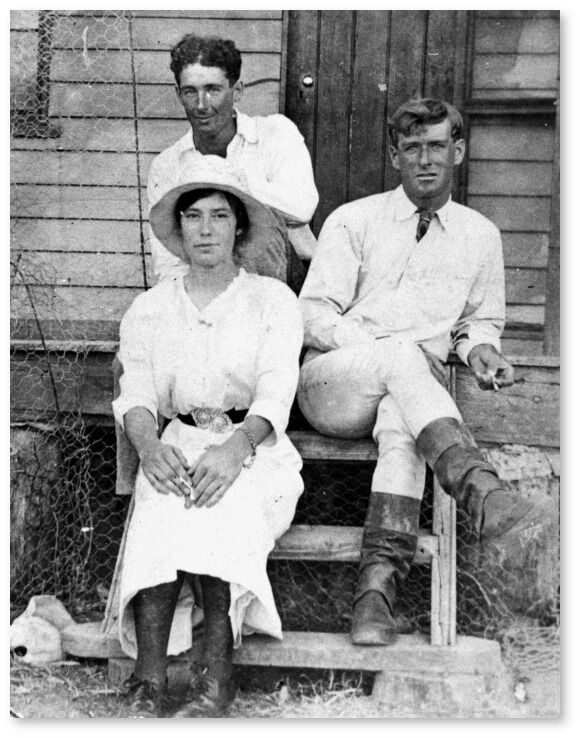Pastoral Stations, Queensland
By Marg Powell, Specialist Library Technician, Metadata | 24 February 2025

Zach Weir rounding up cattle in the stock yard, Davenport Downs Station 22 March 2020. Davenport Downs photographs, State Library of Queensland. Dean Saffron, photographer
"I love a sunburnt country, A land of sweeping plains, Of ragged mountain ranges, Of droughts and flooding rains. I love her far horizons, I love her jewel-sea, Her beauty and her terror, The wide brown land for me!" - from "My Country" by Dorothy MacKellar, OBE, c.1904
Original material collections - Pastoral stations
Life on the land in Australia - from the advancement of settlement by the British, who displaced the traditional custodians of the country - who then claimed all lands for the Crown - to 'squatters' who 'took up' large tracts of 'unoccupied' land for pastoral purposes, and pastoralists who were granted leases - all sought not only to reach a level of self-sufficiency but profitability, sending produce to markets domestically and internationally.
Stations can be thousands of sq km in area, with the nearest neighbour being hundreds of km away. Davenport Downs is the largest cattle station in Queensland and the fourth largest in Australia, located in the Channel Country of Queensland and covers 1,510,000 hectares.
These collections contain the history of the property … when it was cleared, how it was stocked and worked, when it rained, flooded or suffered from drought … and some … contain footprints of the traditional owners of the land … who remain closely tied to their country.
Station Records / Collections
State Library holds almost 300 individual collections relating to pastoral stations. They include: stock books, station diaries, rainfall and climate records, photographs and correspondence.
These properties were traditionally operated by family groups but they also employ - stockmen, drovers, boremen, managers, mechanics, machinery operators, station and camp cooks, teachers, overseers and bookkeepers.
Ledgers and correspondence reference men and women associated with the station, working stock and managing the land. They include people of Aboriginal and Torres Strait Island heritage as well as those who came to Australia from European, Asian, Indian and Pacific Island nations.
Many original holdings still operate today, others have ceased to exist, or have become National Parks.
Explore Station Records

Farrier working at Marion Downs Station in the 1960s, Peter Knowles, photographer. 32860, Peter Cosby Knowles 'Ringers' collection of photographs

Camel trainer Kelly Cole on Charlotte Plains Station near Cunnamulla Queensland, 2014. Dean Saffron, photographer. 29693, Dean Saffron outback camel mustering photographs
Photographs / Collections
Located within individual Photographic Collections, or collections of Original Material - are images of pastoral stations, the families who worked them, and their employees - visually documenting station life.
Look for them in:
- Pastoral Station Records
- Copy Print Collections
- Family Papers
- Individual Albums, and
- Commissioned Works
- they date from the 1840s to contemporary times.
Explore Pastoral Station Photos
Family Papers / Collections
These papers - which include diaries, reminiscences, manuscripts, letters, maps, and photographs - as well as clippings from agricultural journals and farming magazines - contain the stories of Queensland’s rich pastoral development.
Some significant collections include:
- Archer Family
- Bell Family, Coochin Coochin Station
- Christison Family & Lammermoor Station
- Edward Vincent Sandilands
- Lethbridge Family & Forest Vale Station
- Rawson Family
- Sir Thomas McIlwraith
Explore Family Collections

Gem Taylor and Jim (James) Corey Riley (overseer) and one other, Isis Downs Station, ca. 1915. R 762 Isis Downs Station photographs
Exhibitions
- Working country, 2024 [SLQ]
Podcasts
- Life on the land: https://podcasts.apple.com/au/podcast/life-on-the-land/id1528231879
- Dangerous women podcast: Keleen Mailman OAM
References
- Atlas of Queensland and Northern Territory Pastoral Stations / Terrence & Rosemary Alick
- Land Tenure Map Queensland, 2025
Comments
Your email address will not be published.
We welcome relevant, respectful comments.